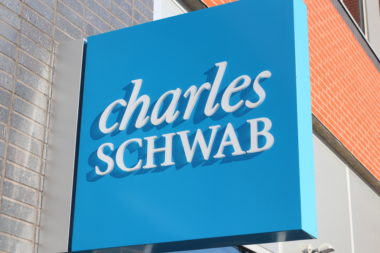There are several types of bank accounts to choose from. Savings accounts are often a good way to store your money in both the near term as well as the long term, since they are insured by the FDIC, accrue interest over time, and are separate from checking accounts and credit card accounts, which most people use when making purchases.
A Certificate of Deposit (CD) is a special kind of savings account with terms that can benefit both the bank and the customer if they are understood and used correctly.
Table of Contents
What Is a CD?
A CD is a special type of savings account that is defined by two qualities:
- A high interest rate: CDs will often carry a higher interest rate than conventional savings accounts. This means that, over the same period of time, they will accrue more interest per dollar compared to a standard savings account. The exact interest rate is usually determined by the maturity date on the CD, as discussed below. A longer maturation period means a higher interest rate.
- A maturity date: Unlike other bank accounts, you can’t withdraw funds from a CD until that account matures, reaching the maturity date that was agreed upon when the CD was opened. Typically, the maturity date for a CD is six, 12, 18, or even 60 months after it was opened, but this can be negotiated with banks.
In other words, a CD has a higher return on investment than a conventional savings account, but in order to receive that higher interest rate, you must be willing to leave the money untouched for a certain period of time. Like other savings accounts, you can usually open a CD with your bank, credit union, or broker.
CDs vs. Savings Accounts
A CD is different from a savings account in two ways: its higher interest rate and its time limit until the funds can be withdrawn. On one hand, a CD is ideal for people who can confidently put away a large sum of money into the account for a set period of time. On the other hand, savings accounts don’t offer the same level of return as a CD, but they’re much more flexible if you have a slightly uncertain financial future ahead of you.
CDs vs. Money Market Accounts
CDs are very similar to money market accounts. Both types of account have higher interest rates than a typical savings account and both of them place limits on when the user can withdraw funds.
However, while CDs have a fixed interest rate that is determined by the length of the maturation period, money market accounts have a variable interest rate depending on how the market is performing. Money market accounts also tend to have more flexible withdrawal limits including, for example, a limit on the number of checks that can be written from that account during a given time, rather than a hard limit on when money can be withdrawn at all.
How Does a Certificate of Deposit Work?
If you open a CD with your bank or other financial institution, then you’ll be asked how much money you’d like to deposit in the CD and how long you’d like the maturation period to be. The more money you put into the account and the longer you’re willing to leave it untouched, the greater your return will be. This is because of how CDs work for the bank.
Since CD account holders are committing to leaving their funds with the bank for a set period of time, the bank has much more freedom to use that money to offer loans to its borrowers. This helps the bank to make money, so some of that money can be returned to CD account holders in the form of high interest rates.
Once your CD has reached its maturity date, the bank will send you a notice directing you to withdraw your funds. Individual banks have different policies about what to do if a customer’s CD has matured, but they have not claimed the funds. However, they may roll those funds into a conventional savings account, roll them into a new long-term savings account, or have another policy for handling the unclaimed funds.
What Is a CD Ladder?
To give yourself more flexibility when it comes to withdrawing funds from your CDs, you can set up a CD ladder. A CD ladder is a financial strategy that involves opening multiple CDs with staggering maturity dates.
For example, you could put $1,000 in a CD that matures in six months, another $1,000 in a CD that matures in 12 months, and yet another $1,000 in 18 months. A CD ladder can ensure that you’re constantly getting returns from your CDs without sacrificing interest rates.
Should I Get a Certificate of Deposit?
A CD is ideal for consumers who have some measure of financial stability. To benefit from a CD, you need to be comfortable with putting your money away for a set period of time where you will be unable to touch it.
If you’re living in poverty or struggling to make a living wage, then a CD is probably not a good idea for you at this time. It’s also unwise to put your emergency fund into a CD, since you would be unable to access it if an emergency happened before the maturity date.
However, if you have a good personal budget that you’re able to follow month over month, you have a reliable source of income, and you’re interested in growing your savings over the long term, then a CD might just be exactly what you’re looking for.
Image Source: https://depositphotos.com/





